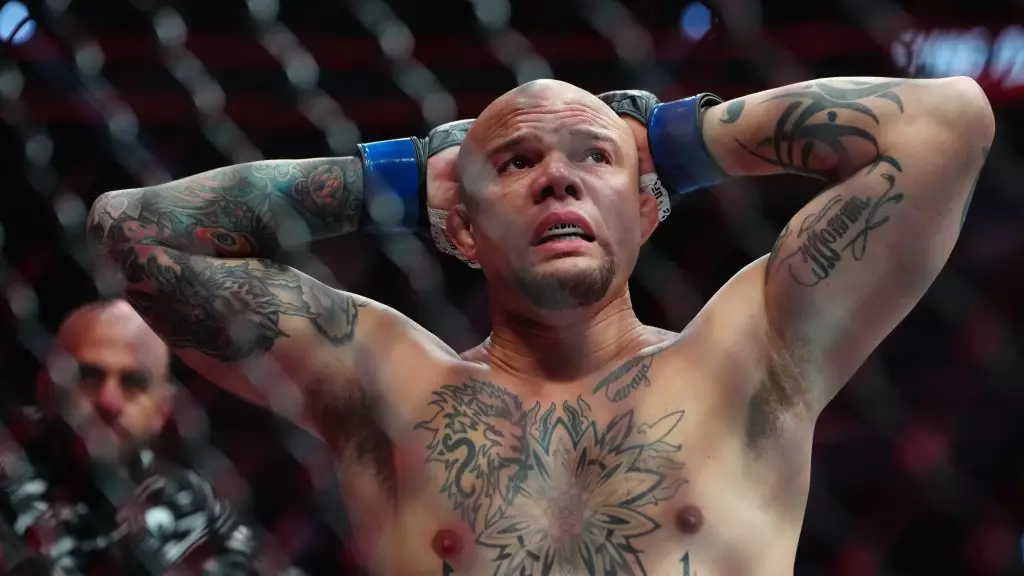In the aftermath of UFC 310, mixed martial arts enthusiasts and analysts alike are left questioning the future of Anthony Smith. The athlete, known as “Lionheart,” faced a challenging bout against Dominick Reyes, ultimately succumbing to a second-round TKO. This loss marks the fifth time in seven fights that Smith has found himself on the wrong side of the decision, leading many to speculate about his viability within the octagon, especially in light of the emotional turmoil surrounding him since the passing of his long-time friend and coach, Scott Morton.
Smith’s display of emotion while entering the arena served as a poignant reminder of the personal battles that athletes face outside of competition. The flame of determination can often flicker in the wake of tragedy. During the fight, Reyes noted a particularly concerning moment where Smith appeared to drop his guard, verbally requesting to be hit—a sign of surrender that raises eyebrows regarding his mental readiness for the bout. His post-fight address to fans encapsulated his struggles, where he candidly admitted that he felt uncertain about his future without Morton’s guidance. This admission invites a broader discussion regarding the mental health of athletes in high-stakes environments, where external pressures often collide with personal grief.
Despite the disheartening loss and emotional revelations, analyst Michael Bisping offers an alternative perspective on Smith’s future in the UFC. While Bisping acknowledges the gravity of Smith’s situation, he argues that the fighter might not be ready to close the chapter on his career. His belief that Smith would feel embarrassed watching his performance hints at the competitive spirit that keeps athletes motivated. Bisping suggests that this embarrassment could reignite Smith’s ambition to redeem himself in subsequent fights, creating a narrative of resilience rather than defeat.
As the discussion surrounding Smith’s career unfolds, calls for him to consider his own well-being are evident. Bisping emphasizes the importance of committing fully to training and preparation if Smith chooses to continue fighting. This serves as a critical reminder for all athletes within combat sports: the line between passion and peril can often blur, especially as age and wear accumulate. The franchise itself has seen numerous veteran competitors linger past their prime, leading to serious implications for their health and longevity.
Looking ahead, the trajectory for Anthony Smith remains uncertain and fraught with potential pitfalls. The MMA community will be keenly observing his next moves, particularly whether he can harness the emotional turmoil stemming from his personal loss and channel it positively into his fighting career. Ultimately, whether he chooses to fight again or consider retirement, it will be crucial for Smith to reflect deeply on his motivations, aspirations, and the legacy he wishes to leave within the sport. Only time will tell if “Lionheart” can rise again to prove that his journey is far from over.

